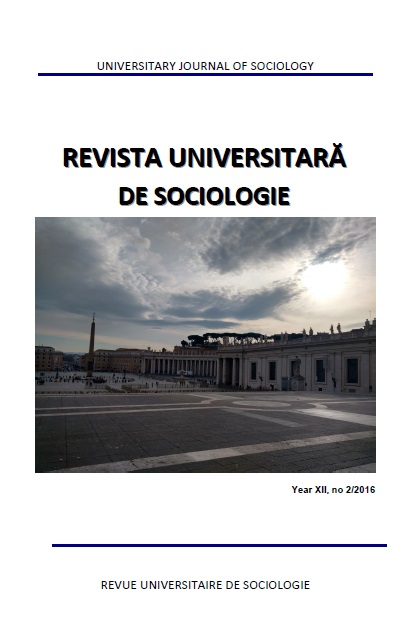SOCIAL VARIABLES IN THE MORAL EDUCATION FROM THE NATIONAL CURRICULUM PERSPECTIVE
SOCIAL VARIABLES IN THE MORAL EDUCATION FROM THE NATIONAL CURRICULUM PERSPECTIVE
Author(s): Cristina-Maria PescaruSubject(s): Politics / Political Sciences, Politics, Social Sciences, Sociology, Preschool education, School education, State/Government and Education, Social Norms / Social Control, Sociology of Education
Published by: Ediktura Beladi
Keywords: moral education; curriculum perspective; psychological variables; moral norms;
Summary/Abstract: The moral-civic conduct represents the externalization, the objectifying of the moral-civic consciousness in acts and actions of various concrete situations in which the child is. One plan covers “the interior” plan, the other one “the exterior” plan of the moral personality. Morality can be sketched, provisionally defined as a real, collective and individual phenomenon, comprising both rules (principles) that govern the human relations and human types of activities and all the (subjective and objective) manifestations which are made in various degrees and ways into these rules, which assess the collective and individual appreciations.(Cătineanu, T., 1982: 60-62)Specifying the social, extrinsic tasks related to a social order, makes it possible to sighting the location and the status that ethics plays in the social disciplines. Ethics has a dual status, being a theoretical discipline of a philosophical and scientific nature.
Journal: Revista Universitară de Sociologie
- Issue Year: XII/2016
- Issue No: 2
- Page Range: 63-75
- Page Count: 13
- Language: English

